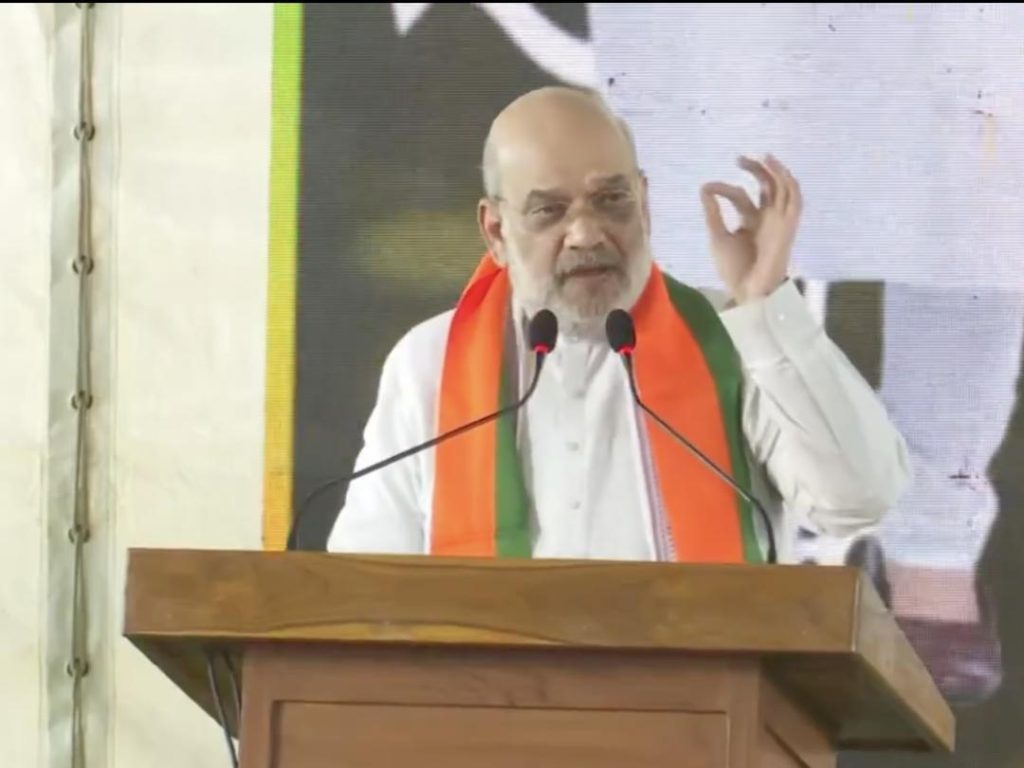
BJP Will Form Govt in Both Tamil Nadu & Bengal in 2026: Amit Shah
In a recent event in Madurai, Tamil Nadu, Union Home Minister Amit Shah made a bold statement that sent shockwaves across the political landscape of the country. Shah, while addressing the gathering, confidently asserted that the Bharatiya Janata Party (BJP) and its National Democratic Alliance (NDA) will form the government in both Tamil Nadu and West Bengal in 2026. This statement has sparked intense debate and speculation among political analysts and stakeholders, with many questioning the feasibility of such a bold prediction.
Shah’s statement, which was met with a mix of applause and skepticism, was made during a function to mark the anniversary of the 1991 liberation of Kashi Vishwanath temple in Varanasi. He emphasized that the BJP and NDA have been working tirelessly to unite various sections of society and that their efforts will bear fruit in the upcoming elections. Shah’s statement can be seen as a challenge to the ruling parties in both states, the Dravida Munnetra Kazhagam (DMK) in Tamil Nadu and the Trinamool Congress (TMC) in West Bengal.
Shah’s claim is particularly noteworthy in the context of Tamil Nadu, where the DMK has been the dominant force for decades. The party has a strong support base among the state’s Dravidian population, and its leaders have been instrumental in shaping the state’s politics. Moreover, the DMK has been in power in the state for most of the past three decades, and many believe that the party’s hold on the state is unshakeable. However, Shah’s statement suggests that the BJP and NDA are confident of uprooting the DMK from power in the next elections.
Shah’s statement has also been seen as a sign of the BJP’s growing ambitions in the eastern region of the country. The party has been making inroads in West Bengal in recent years, and Shah’s statement can be seen as an attempt to build momentum ahead of the 2026 elections. The TMC, led by Mamata Banerjee, has been the ruling party in West Bengal since 2011, and the BJP has been trying to dislodge it from power.
Shah’s statement has been met with a mix of reactions from political leaders and analysts. While some have hailed his confidence as a sign of the BJP’s growing strength, others have dismissed it as mere bravado. The DMK and TMC have both responded to Shah’s statement, with the DMK’s working president, M.K. Stalin, labeling it as “baseless” and “an attempt to demoralize the party’s workers.” The TMC’s leader, Mamata Banerjee, has also dismissed the statement, saying that the BJP is “daydreaming” about forming a government in West Bengal.
Despite the skepticism, Shah’s statement has sent a clear message to the political establishment in both states. It has encouraged the BJP’s supporters and cadre to work hard to achieve their goal, and it has also put pressure on the ruling parties to take the opposition seriously. The statement has also highlighted the intense competition that is brewing ahead of the 2026 elections, with both parties likely to go all out to win the battle for power.
Shah’s statement is also significant in the context of the BJP’s ambitions beyond the Hindi heartland. The party has been trying to expand its presence in the southern and eastern regions of the country, and its success in these regions will be crucial in its bid to become a pan-Indian party. The BJP’s success in Tamil Nadu and West Bengal will also be a significant feather in its cap, as it will demonstrate its ability to win elections in diverse regions with distinct political cultures.
In conclusion, Amit Shah’s statement that the BJP and NDA will form the government in both Tamil Nadu and West Bengal in 2026 is a bold and ambitious claim. While it has sparked intense debate and speculation, it is clear that the BJP is confident of its chances in both states. The party’s success in these elections will be crucial in its bid to become a dominant force in Indian politics, and it will be interesting to see how the elections unfold in the coming years.






